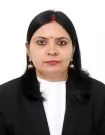- within Government, Public Sector, Corporate/Commercial Law, Litigation and Mediation & Arbitration topic(s)
- in United States
- with readers working within the Law Firm industries
The efforts of Goolrukh Gupta, a Parsi woman who married outside her community, to be allowed entry into the 'Fire Temple' and 'Tower of Silence', to attend the last rites of her parents has brought into focus the peculiar struggle that exists in India of Religious Rights of Women.
The Parsi community is quite exclusive – it allows only Parsis to enter the Fire Temple and Tower of Silence. Parsis also abide by patrilineal descent and Parsi women who inter-marry, are deemed to have converted to their husband's faith. Resultantly, Parsi Religious Trusts may disallow Parsi women who have inter-married, from entry into the Fire Temple and Tower of Silence.
Goolrukh, who lives in Valsad, Gujarat, married a person of Hindu faith. Upon seeing her Parsi friend who had also inter-married, be refused entry into the Fire Temple and Tower of Silence for her parents' funerary rituals, Goolrukh decided to petition the Parsi Trust at Valsad to ask that she be allowed to attend the rituals that would comprise her parents eventual demise. Valsad Trust refused to acknowledge Goolrukh's request.
Goolrukh approached the Hon'ble High Court of Gujarat and argued before the Full Bench that she continues to be a Parsi after her marriage to a Hindu. The Valsad Trust contended that Parsi women cease to hold their Parsi identity upon marriage outside their community.
By a 2:1 majoirty, the Hon'ble High Court held that a Parsi woman, upon an inter-religious marriage under the Special Marriage Act, 1954 ('SMA'), is deemed to acquire her husband's religious status, unless a declaration is made by a competent court for continuation of her status as a Parsi after marriage.1
Two points of the majority judgment are open to debate. First, it suggests a deemed conversion of only a woman upon her marriage under the SMA. This flies in the face of the Right to Equality under Article 14 and Right to Religion under Article 25 of the Constitution. The majority also portrays a regressive interpretation of the SMA, which was enacted post-Independence, in line with Constitutional principles. The British-era Special Marriage Act of 1872 ('old SMA') could not be employed by Christians, Muhammedans and Parsis and a declaration was to be made by the bride and bridegroom that they do not profess these religions. Resultantly they would have to renounce their religions for a marriage under the old SMA. The SMA of 1954 does not require any such declaration/renunciation and allows marriages between all religions. Secondly, the majority requires a court to factually determine and declare that a woman, despite her deemed conversion under the SMA, has chosen to abide by her religion as prior to marriage. This deemed conversion under the SMA – which women have no choice but to negate by a competent court's declaration – is as good as an excommunication of women from their faith. The majority problematically reasons that the wife's deemed conversion will lend certainty for identification of the child's religion, which is in the larger interest of society, and for the proper observance of customs.2
This interpretation of the SMA not only excommunicates women from their religion, but limits the child to identifying with one religion. This militates against an individual's Freedom of Religion guaranteed under Article 25 and goes against the ideals of a secular nation enjoined by the Preamble.
The dissenting minority judgment is more in line with the applicable legal framework. Justice Kureshi holds that Goolrukh was well within her right to retain her religious identity after her marriage to a Hindu. He also notes the progressive nature of the SMA holding that it enables persons of inter-religious faith to solemnize their marriage, in contrast to how personal religious laws may not recognize the same, unless one party renounces/converts from his/her religion.3
However, Justice Kureshi opined that petition was not maintainable as the Valsad Trust does not come within the definition of "State" under Article 12 of the Constitution.4
This dismissal on maintainability is evocative of the unease felt by Courts when they must decide between religious customs and Fundamental Rights guaranteed under the Constitution.
When Goolrukh appealed to the Hon'ble Supreme Court, the Valsad Trust gave into the Court's suggestion that Goolrukh and her family be allowed to attend rituals, which order operates merely in the interim and is not rendered in rem.5
We are yet to see whether Indian Courts would continue to employ a progressive approach to ensure that religious customs that are no more beneficial be overruled in favour of Fundamental Rights, which guarantees right to freely profess, practice and propagate religion subject only to public order, morality and health. This may be done by stuck down of customs and usage which are in derogation of Fundamental Rights as provided under Article 13 of the Constitution.
The triple talaq judgment6, Dr Noorjehan Safia Judgment7 on the issue of entry of Women in sanctum sanctorum of Haji Ali Dargha and referring of issue of entry of Women in Sambarimala Shrine, Karala by Hon'ble Supreme Court to Constitutional Bench8, which restriction was upheld by Hon'ble Kerala High Court9 are such exceptions in favour of Religious Rights of Women in India. The Article in its second part shall deal with such exceptions and approach of Indian Courts.
Footnotes
1 Goolrokh M. Gupta v. Burjor Pardiwala President & Ors. 2013 (2) RCR (Civil) 91 (henceforth 'Goolrokh Case') at Para 31.
2 Id Goolrokh Case at Para 26.
3 Id Goolrokh Case at Paras 81 and 82
4 Id Goolrokh Case at Paras 96 and 98
5 Goolrokh M. Gupta v. Mr. Burjor Pardiwala (Dead) & Ors. SLP (C) No. 18889/2012. Order dated 14.12.2017.
6 Shayara Bano v. Union of India & Ors. ( 2017 ) 9 SCC 1
7 Dr. Noorjehan Safia Niaz v. State of Maharashtra (2016) 5 AIR Bom R 660
8 Indian Young Lawyers Association & Ors. v. State of Kerala & Ors. (2017) 10 SCC 689
9 S. Mahendran v. Travancore Devaswom Board, AIR 1993 Ker 42
The content of this article is intended to provide a general guide to the subject matter. Specialist advice should be sought about your specific circumstances.



